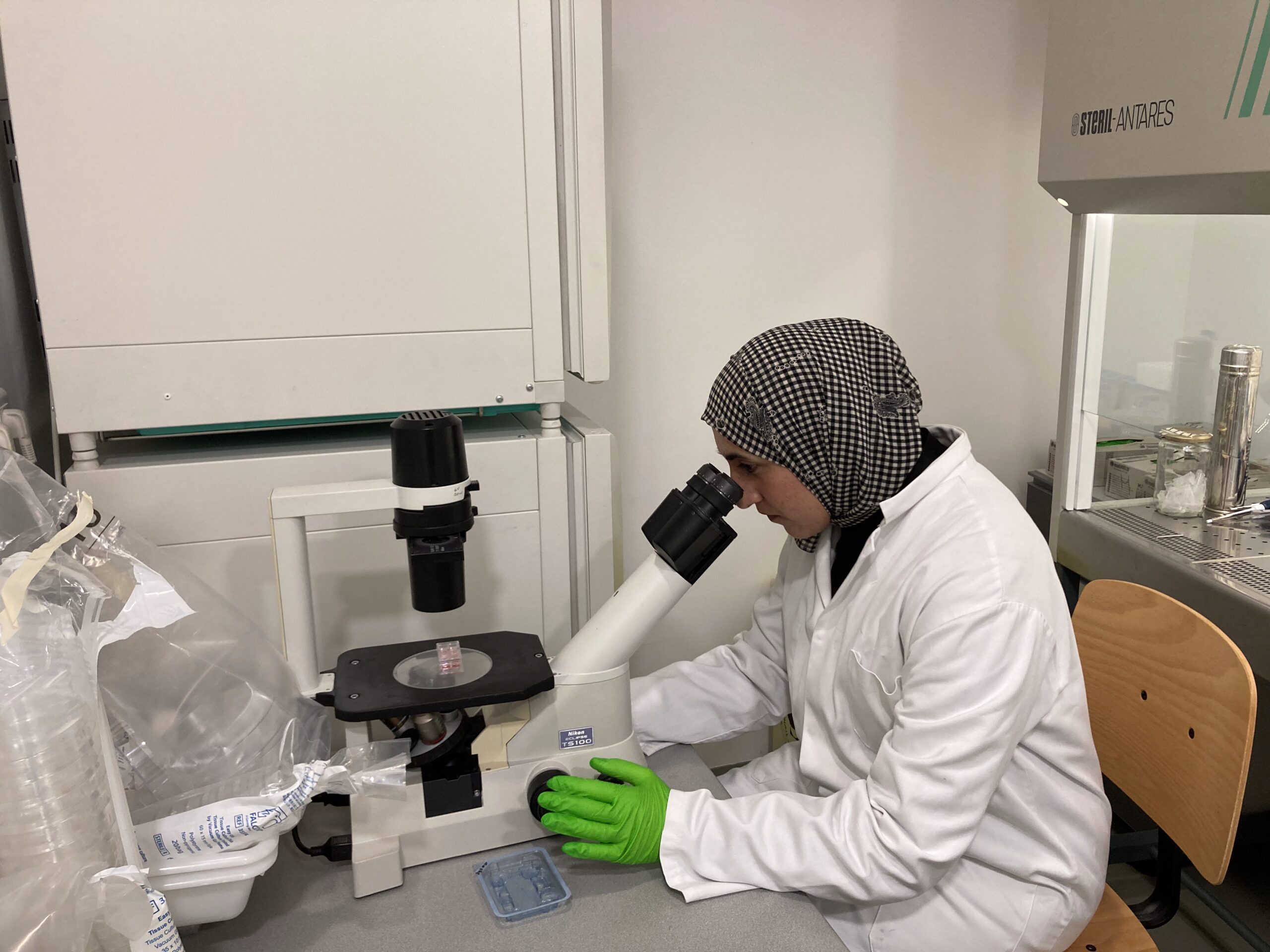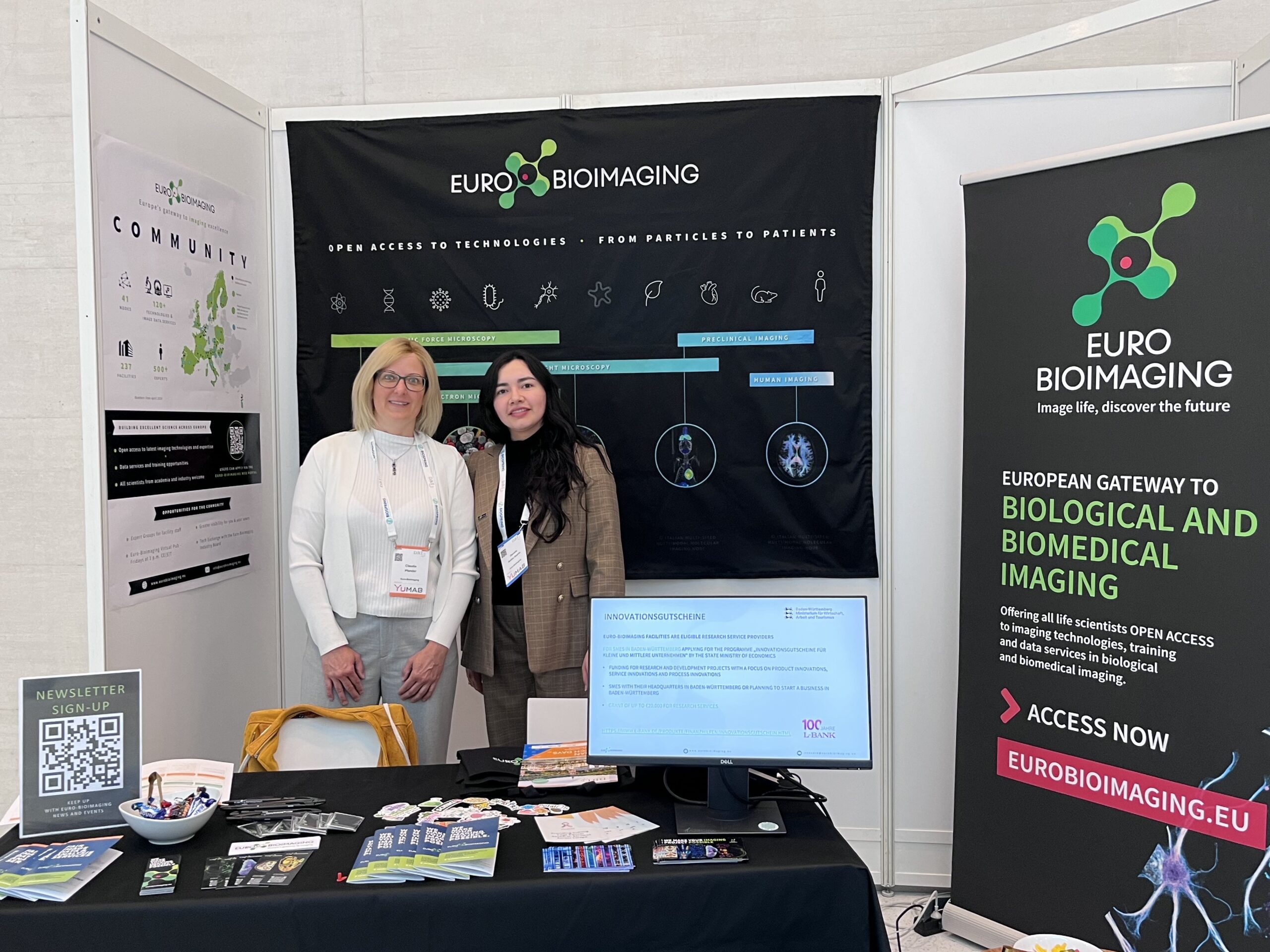
Euro-BioImaging: Adapting to a new normal – remote access and beyond
In March 2020, many imaging core facilities had to turn their equipment off and close shop for multiple weeks, due to the global pandemic. This “shutting down” marked a major turning point in the way Euro-BioImaging Nodes, some of Europe’s most prestigious imaging core facilities, provide their services. The pandemic could have dealt a serious blow to Euro-BioImaging’s modus operandi, based on providing open access to imaging facilities, often for international visitors. Instead, the global lockdown led to many innovations within our community, and pushed our infrastructure to develop a broader and more inclusive service offer for the future. Johanna Bischof, Scientific Project Manager at Euro-BioImaging explains some of the ways in which Euro-BioImaging was able to support facilities during this time of transition.
How does an infrastructure based on transnational access function in a global lockdown?
Johanna: Our infrastructure functioned very well and showed great adaptability during the lockdown. Of course, there was a slowdown of activity at the beginning.
Prior to the lockdown, a handful of our core facilities were already offering remote imaging services, but the typical Euro-BioImaging project included the user travelling to the imaging facility to receive on-site training, use the imaging equipment and benefit from close collaboration with core facility staff on experiments, data acquisition and analysis. These kinds of user visits were impossible for a while. But as soon as imaging centers could reopen, our Nodes quickly adapted to the situation, continuing to provide user services in many creative ways while keeping their staff and the scientists safe.
We were also struck by the perseverance of our users, some of whom put their precious samples in the mail and with the help of our Nodes performed their experiments remotely, or traveled in uncertain conditions for the sake of science.

Euro-BioImaging user Roberta Ranieri of the University of Perugia conducts her experiment at Euro-BioImaging’s EMBL Node in September 2020. Learn more
Switching to remote access sounds challenging. How did Euro-BioImaging support its Nodes in that process?
Johanna: As it became clearer that pandemic-related restrictions were here to stay, we wanted to find ways to support our Nodes as they tackled the change in how they provide their services. For this reason, we started an Expert Group on Remote Access and Training in October 2020.
This group brings together facility staff to exchange experiences, collect resources, and identify common roadblocks. The group has 35 members, representing 26 different facilities across 12 countries, and covers the whole spectrum of imaging techniques. In the regular meetings, group members share their experiences on everything from remote instrument control and sample shipping, to technical solutions for user training and virtual teaching. In the group, we have collected resources for training materials that can be used in remote user training. We also have representatives from companies of the Euro-BioImaging Industry Board joining the expert group regularly, allowing the exchange of solutions for remote access developed in industry and academia.
This Expert Group is one way in which we supported our community as they adapted to a new normal, by fostering exchanges and sharing best practices.
Through the many discussions on remote access, everyone in the group has taken away practical solutions for some of the problems they were facing. At the same time, we have all come to appreciate that remote access also brings some advantages which inspires us to pursue sustainable solutions for remote access.
For example, reduced travel through remote access reduces the environmental impact of the services we provide. And remote training courses are also accessible to a much larger group of researchers, who may not have the time or resources to travel to participate.

A picture from the software hands-on session of the "FLIM not only for biologist" course offered by the Imaging Methods Core Facility at BIOCEV, part of our Prague Node, that was held remotely this year with 13 participants.
Did Euro-BioImaging work with other European Research Infrastructures during the pandemic to support exchange within a larger research ecosystem?
Johanna: Yes, we definitely did. A number of different Research Infrastructures have a similar service model as Euro-BioImaging where they offer their user physical access to machinery and training. Through an existing project, in which the life science research infrastructures work together, called EOSC-Life, we started to exchange on this topic and realized that a number of infrastructures faced a lot of the same concerns as we did in the transition to remote access.
Therefore Euro-BioImaging, together with Instruct ERIC organized a workshop with over 100 participants – all virtually of course – to bring together facility staff from the different life science research infrastructures and beyond. In this workshop, it was fantastic to see everyone sharing the solutions and tips and tricks they had developed for remote access and user training.
It is very useful to bring together such interdisciplinary groups of service providers because the remaining road blocks and challenges in developing remote access that affect everyone, become more obvious and new solutions can be more widely shared.
Any other remarks?
Johanna: More than a year after the start of the pandemic, most of our Nodes currently offer some form of remote access for users, depending on the technology, the sample and the project type. In addition, many have developed online training resources to teach individuals to use cutting-edge equipment and organize online training courses for larger groups.
And we've also found more ways to keep in touch with our Nodes, even if travelling is still difficult. One of these ways to connect is our Virtual Pub. Started as an informal "meet-up" during the lockdown, the Virtual Pub has expanded to become a weekly event with great scientific presentations. Many of our Node staff attend to listen or present their work. And it’s open to everyone - all imaging enthusiasts are welcome to join on Fridays at 1 pm.
All in all, it’s been a really exciting time to be a Scientific Project Manager at Euro-BioImaging and work closely with our community to face the challenge of adapting to a new normal together.
Read more:
- o From Finland: Virtual STED microscopy
- o From Italy: Remote access in preclinical imaging services
- o From Finland: Remote access to Finnish ALM Node
- o From Italy: Running remote experiments in Italy's Elettra Synchrotron laboratory
- o From EMBL: Remote experiments with STED microscopy
- o From Sweden: Providing remote training for new users of Light and Electron Microscopy
Multimedia content:
Don’t miss this video from Bordeaux Imaging Center, part of our French Node on "Closing due to lockdown"
More news from Euro-BioImaging


